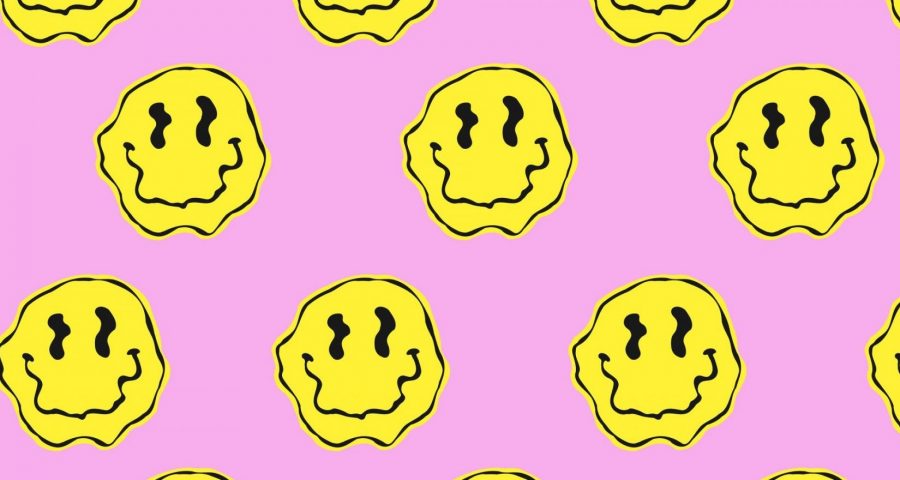Written by Ellen Scott
Things rarely work out exactly the way they planned. Accepting that might sound tough, but it could make you happier.
We’d all love to be blessed by the fates and live a golden existence where nothing ever goes wrong – just look at our desperate chasing of ‘lucky girl syndrome’ for evidence of this.
But the reality is: that’s not going to happen. Your path will not be smooth. Instead, there will be potholes, areas in need of repaving and perhaps some not-so-great hitchhikers along the way. You could get irritated by each bump in the road, but this is a route to heightened stress and general misery. Instead, accepting and anticipating challenges could be a good way forward.
“Optimism is good for us through and through, for our health and stress levels,” Dr Elissa Epel, a professor in the department of psychiatry at the University of California, San Francisco, tells Stylist. “However, it isgood sometimes, when the odds are against us, to have a bit of defensive pessimism, to protect us from disappointments and to surprise us with good outcomes.
“When the future is very uncertain, ambiguous and we can’t predict outcomes at all, it is good to have an ‘I don’t know’ mindset. To be open to all possibilities and not tightly wed to one.”
In short, rather than being an eternal optimist, and thus being shocked when things don’t go as planned, or a pessimist, where you’re always expecting doom and gloom, we should be realists, aware that our plans might not turn out how we’d like, that difficulties may arise, and learning to be able to roll with the punches.
This is about accepting uncertainty, accepting that we can’t control how everything pans out and letting go of expectations.
That’s tricky, because, as Epel explains in her book The Seven-Day Stress Prescription, we love certainty.
“The human brain loves certainty,” Epel writes. “It’s what allows our nervous system to relax. When conditions are predictable and stable, we have more cognitive bandwidth to spend on thinking, problem-solving, creativity. Our mental real estate isn’t being sucked up by planning, wondering, worrying, and catastrophisng about what might happen. When our environments are mostly predictable, we feel safer. We can relax, to a certain degree, even when other stressful events place a biological toll on our bodies.”
But, as we know, we can’t make every part of life entirely predictable and certain. Thus, Epel recommends that we build up our ‘uncertainty tolerance’ and learn to get comfortable in the discomfort of not knowing exactly what’s going to happen.
This could benefit our mental health in many ways. Epel performed a study on stress during the pandemic and found that those with lower levels of uncertainty tolerance tended to have higher levels of post-traumatic stress, experiencing more anxiety over time. Higher levels of uncertainty tolerance are also associated with lower anxiety and depression.
“We have a highly volatile future right now, so being more comfortable with uncertainty helps us feel less anxious,” Epel tells us. “At the same time, it is helpful to focus on the present moment, the only one we can really control. We can check in with our body to see how we might be holding stress at this moment in our body. We can remind ourselves that the present is certain, and it is safe to relax right now.
“Expecting the unexpected is a mental shift that makes us feel OK when things go awry, or simply not as we’ve envisioned. It allows us to more comfortably bear the ambiguity and uncertainty of life. If we expect the unexpected, when the unexpected does happen, we don’t have an overexaggerated and prolonged fight-or-flight response. Our heart does not thump. Our body doesn’t tense in response to the ‘threat’.
“The data show that the more we can accept and exist comfortably with uncertainty, the less likely we are to develop chronic stress, anxiety, depression or PTSD when times get hard. The more resilient we’ll be to ongoing, unpredictable stressors like, say, pandemics or natural disasters. The faster we recover from traumatic stressors. And the more we can go out and live our lives more fully.”
That all might sound easier than done, and it’s important to note that uncertainty tolerance is a skill that takes time and energy to build up. It’s natural to feel disappointed when things go wrong, but learning to embrace the possibility of this, and to be able to bounce back, can help lessen the crush of a let-down in the future.
Epel recommends reminding yourself that every bump in the road – and the emotion that comes with it – is temporary, and that you can overcome it.
“We may have a little shock and stress response when plans fall apart,” she says. “It’s helpfulto remind ourselves that the future is uncertain, and things often don’t go as planned. This is ‘on brand’ with how life goes. Disappointment is natural, and will pass. Remind yourself that ‘this too shall pass’, you will get through this and that there are other options in the future.
“If it helps, you might remember the Zen proverb: ‘Obstacles do not block the path; they are the path.’”
The Seven-Day Stress Prescription by Dr Elissa Epel is available now (Penguin Life, £9.99)
Main image: Getty; Stylist
Source: Read Full Article
